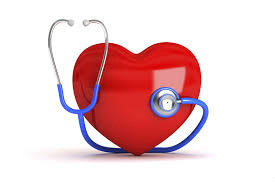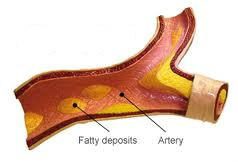
Once upon a time we weren't able to characterise the different lipid substances in our bloodstream now known as HDL, LDL and triglycerides so they were all bundled into the same classification called cholesterol. Everyone these days is worried about having high cholesterol however cholesterol has little to do with atherosclerosis and heart disease.
If you want to know if you are lining up to have a heart attack or stroke at the age of sixty or if you will be heart healthy up to a ripe old age, you will want to know if you have LDL (Low-density lipoproteins) particles accumulating in the walls of your arteries. The size of the LDL particles is critical when determining this.
LDL particles when oxidised cause atherosclerosis which is a build up of these fatty plaques which narrows and stiffens the arteries. Atherosclerosis is the most common cause of cardiovascular heart disease.
If you want to know if you are lining up to have a heart attack or stroke at the age of sixty or if you will be heart healthy up to a ripe old age, you will want to know if you have LDL (Low-density lipoproteins) particles accumulating in the walls of your arteries. The size of the LDL particles is critical when determining this.
LDL particles when oxidised cause atherosclerosis which is a build up of these fatty plaques which narrows and stiffens the arteries. Atherosclerosis is the most common cause of cardiovascular heart disease.
So what foods cause atherosclerosis?
When we eat carbohydrates such as bread, wheat, pasta, biscuits or sweets they turn to glucose when digested. Glucose is converted into triglycerides in the liver and is then released into the bloodstream as Very Low Density Lipoproteins VLDL.
These VLDL will be converted into large or small LDL depending on the type of carbohydrate which was consumed. If it is the same starchy and sugary carbohydrates as named above then the LDL particles will be small. When oxidized these small LDL are the particles which cause all the damage.
These VLDL will be converted into large or small LDL depending on the type of carbohydrate which was consumed. If it is the same starchy and sugary carbohydrates as named above then the LDL particles will be small. When oxidized these small LDL are the particles which cause all the damage.
What is oxidation?

Oxidation is the process of aging. An example of oxidation is when a kid puts a half eaten apple on the table for too long and it turns brown. Oxidation in the body can lead to many diseases including cancer, heart disease and diabetes.
Large LDL particles are disposed of where as small LDL particles stick around (literally) for much longer. The small LDL particles oxidize over time and become inflammatory and because of their tiny size they get stuck which causes the build up of atherosclerotic plaque. Compared to large particles, small LDL particles are eightfold more susceptible to causing this narrowing of the arteries.
Large LDL particles are disposed of where as small LDL particles stick around (literally) for much longer. The small LDL particles oxidize over time and become inflammatory and because of their tiny size they get stuck which causes the build up of atherosclerotic plaque. Compared to large particles, small LDL particles are eightfold more susceptible to causing this narrowing of the arteries.
So what should you do to avoid this?
Avoid starchy and sugary carbohydrates as small LDL particles are formed when these are eaten. These same carbohydrates increase blood glucose which glycates these small LDL and forms atherosclerotic plaque. Foods that increase blood glucose are therefore responsible for both greater quantities of small LDL and also increased oxidation of these LDL.
Simple Sugary Carbohydrates
Complex Starchy Carbohydrates
- Milk
- Fruit
- Honey
- Juice
- Syrups – natural or commercial
- Table sugar
Complex Starchy Carbohydrates
- Starchy vegetables (e.g. potatoes, parsnips, corn, dried beans/peas)
- Grains and grain products (e.g. anything made with grain flour – bread, pasta, cereal, etc.)
Heart disease and stroke are not just about high cholesterol. They are caused by oxidation, gylcation, inflammation and small LDL particles……and yes, the process is triggered by carbohydrates.
Keep an eye out for an article coming soon which will discuss one of the other main causes of inflammation in our diet…..vegetable oils.

 RSS Feed
RSS Feed
